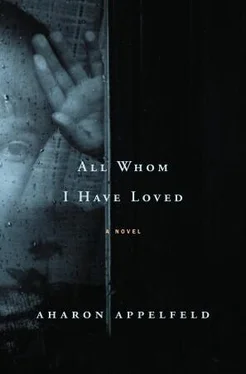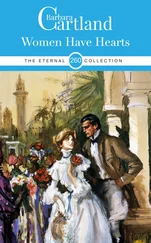“Mother.” I raised my eyes to her.
“What is it, my dear?” she said.
“I know that you've married André,” I told her.
“How do you know?”
“Everyone knows.”
“But you weren't supposed to know.”
“If everyone knows it, so do I,” I said, and we both laughed, as if we had been caught in a white lie.
We reached the station at Storozynetz early in the morning. Frost sparkled on the ground and on the platforms, and icicles hung on the drainpipes, but the sky was blue and clear, and a large sun appeared on the horizon.
“I need a cup of coffee; that's just what I need,” said Father, stomping his feet.
Here, too, there weren't many people. What few there were hurried to the front entrance. Someone shouted, “Where are you?” But there was no response.
Seeing the station and its familiar entrance cheered me up. For a moment it seemed that we had come here only to drink our morning coffee at Café Vienna, renowned for its splendid cakes, and then go off somewhere else. The café owner, who did not remember us, turned to us and said, “Gentlemen, you're up early today. The first rolls won't be coming out of the oven for another half an hour; why not read the paper in the meantime.”
Alongside the partition between the café and the bakery was a counter beyond which you could see the fiery oven. In the hall itself, the dimness of night still reigned. The proprietor returned, promising that coffee and cake would soon be served.
Father lit a cigarette. I clearly remembered coming here with Mother. She was wearing a blue poplin dress. We sat next to the window, and it felt like a continuation of our summer vacation. I had no idea at the time that it was only a prelude to those long and meandering days, that I would lose Halina, and that Mother would find herself a lover. Disaster seemed distant then, as if it belonged to other people and not to me.
The cheesecake arrived and with it steaming coffee. Father tasted it and said, “Excellent.” The grayness in his face faded away, and only traces of it remained under his eyes. The café owner came over and offered us another cup of coffee. Father said, “Of course.” He praised the coffee and the cake.
“I used to come here with Halina.” The words popped out of my mouth.
“Who?”
“Halina.”
“I don't remember her.”
“Halina. The girl who was killed.”
The word “killed,” which had never before passed my lips, was like a flare in my memory. I immediately saw the funeral, with flutists playing all the way from the village to the graveyard. I also saw the clear skies opening to receive Halina. Because Mother had been in a hurry to get back, we didn't attend the funeral meal and didn't see her full resurrection. I was angry with Mother: she was head over heels in love.
Father asked the proprietor how to get to the hospital; he stood in the doorway and pointed, saying, “Straight ahead, straight ahead.”
It was hard to grasp that we were about to visit Mother, sick in the very same place where Halina had been. I saw only Halina, as if both the place and the way to it belonged to her. Father didn't speak, and I didn't disturb him. Winter still crouched everywhere, and we walked along slowly, as if we weren't in a hurry.
In the hospital forecourt many homeless people lay around and thin dogs strayed among the low carts. The homeless were momentarily taken aback when we appeared, and shouted, “Jews!” Father stood there and stared at them.
“Jew, what are you looking at?” one of them said.
Father strode over to him, and the man fled for dear life.
We entered the corridor and climbed the steps. The man at the desk apparently remembered me, but responded with a shrug to Father's question. “Not with us. Perhaps at Wexler's, the private hospital. Or perhaps at the monks' hospice.”
“Where is the Wexler hospital?”
“Not far.”
As we left, one of the homeless shouted out rudely, “What are you doing here, Jew?”
Father didn't hesitate. He grabbed the man by his coat and shook him. The man must have been shocked by Father's reaction and said, “I didn't mean you.”
“So who, then?”
“The bearded Jews.”
“Ask forgiveness. Apologize right now.”
“I'm asking.”
“That's not how you ask.”
“What should I say?”
“Say: ‘I ask forgiveness of all Jews.’ ”
The man repeated this word for word, and Father let him go.
“Run for it!” his friends urged him, but the man stood where he was, as if in the grasp of paralysis.
We set out in search of Dr. Wexler's hospital. Suddenly I saw Mother as she was back in Czernowitz. She was wearing a thick coat and her steps were heavy and cumbersome; she looked like an old peasant woman. I wanted to rub this image out of my eyes, but it was stuck there.
We asked passersby about the hospital. No one knew Dr. Wexler, and those who had heard of the hospital did not know how to direct us there. Finally we found a Jew who showed us the way and blessed us. The sun rose into the horizon, lighting up fields and trees that were bare of leaves. The white snow had disappeared, but clumps of gray snow still lay along the fields. In the distance small peasant cottages could be glimpsed, thin trails of smoke rising from their chimneys.
We reached Dr. Wexler's hospital by midday. It was a two-story structure, with a guard at the entrance. To Father's inquiry as to whether a woman by the name of Henia was a patient there, the guard scanned a list and responded with a decisive “No.” We didn't know Mother's new surname, and so Father asked to see Dr. Wexler. The guard stood up and said, “Dr. Wexler is busy examining patients at the moment and cannot see anyone.”
“When will he be available, sir?”
“I don't know.”
Father put down the suitcase and the duffel bag and lit a cigarette. I saw the anger coursing through his hands, and I was afraid. I used to think that when Father got angry he broke only furniture. Now I knew that he was liable to raise his hand and start hitting people.
Father asked the guard if it was a long way to the monastery hospital.
“It's far.”
“And can one rent a wagon?”
“No.” The guard answered briefly and reluctantly; it must have enraged Father. Father went up to him and warned him with a look, but apparently the man had no idea what Father was capable of and said, “Get out of here!” Father hesitated no longer and smacked him. Then he went straight in, dragging me with him and leaving the bags outside.
The staff must have seen what Father had done, and they stood there, cowed.
“I'm looking for a patient called Henia,” said Father wildly.
“We don't have a woman by that name,” replied a woman in a choked voice.
“How many patients do you have?” Father continued in the same wild vein.
“Twenty-four.”
“I want to see them.”
A door opened and there stood Dr. Wexler. A tall, thin man, he sized us up with a cool, restrained gaze. In response to his question about what we wanted, Father's answer rang out clear, “I'm looking for a patient by the name of Henia, and I want to know if she's here.”
“Her surname?”
“We don't know.”
Dr. Wexler must have seen that Father would not be swayed because he said, “There is nothing to hide; we'll show him everything.” We went from ward to ward and saw all the patients, with their sickly, frozen expressions. Mother was not among them.
“These are our patients,” said Dr. Wexler, and stepped back.
“Has no one been released in the past few days?”
“No one.”
“I'm sorry,” said Father, and grabbed my hand.
Читать дальше












